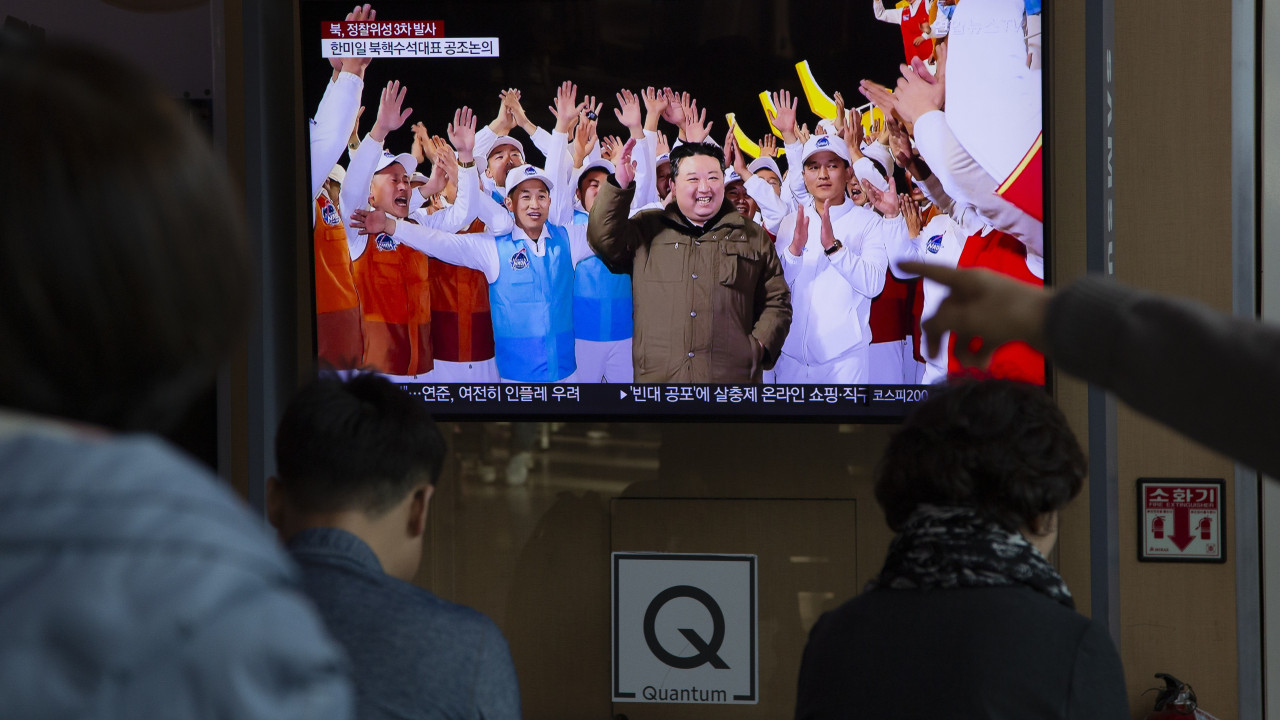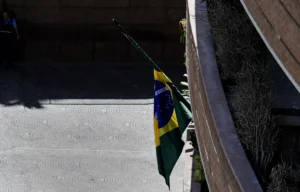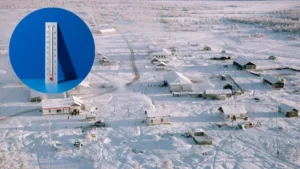
EThis agency said that, “following the summit” between Russian President Vladimir Putin and North Korean leader Kim Jong-un in September, “the North provided Moscow with the plan and data for the launch of the first and of the second satellites,” said Rep. Yoo Sang-bum.
“Russia, in turn, analyzed this data and provided information to the North,” confirmed the politician.
North Korea assured, on Wednesday, that it placed the country’s first military spy satellite into orbit, after launching a space rocket detected by Seoul and Tokyo.
“The Chollima-1 space rocket flew normally along the predefined trajectory and accurately placed the ‘Malligyong-1’ satellite into orbit (…) 705 seconds [quase 12 minutos] after launch,” North Korean state news agency KCNA reported.
North Korea defended the placement of the satellite into orbit as part of its legitimate right to strengthen defensive capabilities, and promised to launch more of these intelligence devices “in a short period of time”, according to the KCNA note, cited by the South News Agency. -Korean Yonhap.
Only today was the launch confirmed by Seoul, which said, however, that it was too early to know whether the satellite was working.
“The national intelligence service assessed that the launch of the spy satellite was successful and that it was placed on an orbital trajectory”, this agency revealed to South Korean deputies, according to Yoo Sang-bum.
The launch of the spy satellite was condemned by a large part of the international community for violating the sanctions imposed by the United Nations on the regime.
The launch “reveals, once again, that [Pyongyang] has no desire to respect the military agreement”, South Korean Defense Minister Shin Won-sik also said today.
On Wednesday, during a parliamentary session, Shin said that the partial suspension of the military agreement signed with Pyongyang five years ago, which allows the South to resume reconnaissance activities in the areas around the militarized border with the North, “is a measure essential to protect the lives and security of the people” and a proportionate response.
Shortly after South Korea partially suspended this agreement on Wednesday, the country deployed drones and reconnaissance planes in border areas, military sources revealed to Yonhap.
Shin’s comments came hours after North Korea announced that it would abandon the pact in its entirety, warning the South that it will “pay dearly” for the decision, and having carried out a missile test – apparently without success – during the night.
“If North Korea carries out provocations under the pretext of suspension, we will respond immediately, with force and to the end,” added the South Korean minister.
The 2018 military agreement, signed in Pyongyang during a summit between North Korean leader Kim Jong-un and then-South Korean President Moon Jae-in, was an important step towards reducing military tension on the peninsula, especially around along the borders.
However, after the failure of denuclearization negotiations with the United States in 2019, Pyongyang approved a weapons modernization plan, which includes the installation of military satellites and involves missile tests, in addition to refusing to resume dialogue and seek, on the other hand, strengthen ties with China and Russia.
Seoul and Washington have reinforced military cooperation with Tokyo and strengthened the deterrence mechanism, deploying a growing number of US strategic assets to the Korean peninsula, such as the aircraft carrier USS Carl Vinson, which arrived this week in Busan, southeast of Seoul.
Read Also: NATO, EU and G7 condemn launch of North Korean spy satellite
All News. By the Minute.
Seventh consecutive year Consumer Choice for Online Press.
Download our free App.
Source: https://www.noticiasaominuto.com/mundo/2446785/moscovo-ajudou-pyongyang-a-lancar-satelite-espiao-diz-seul


